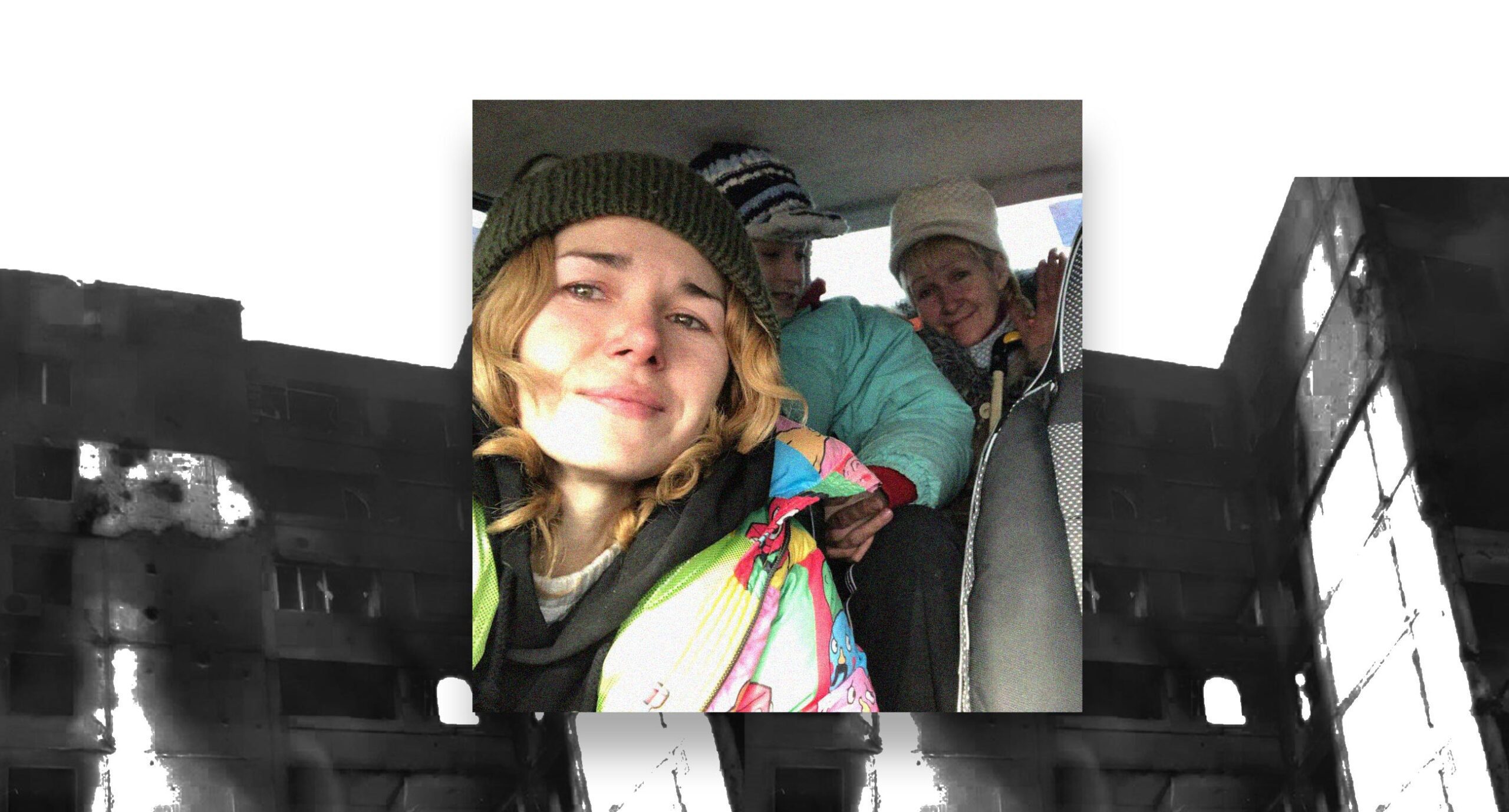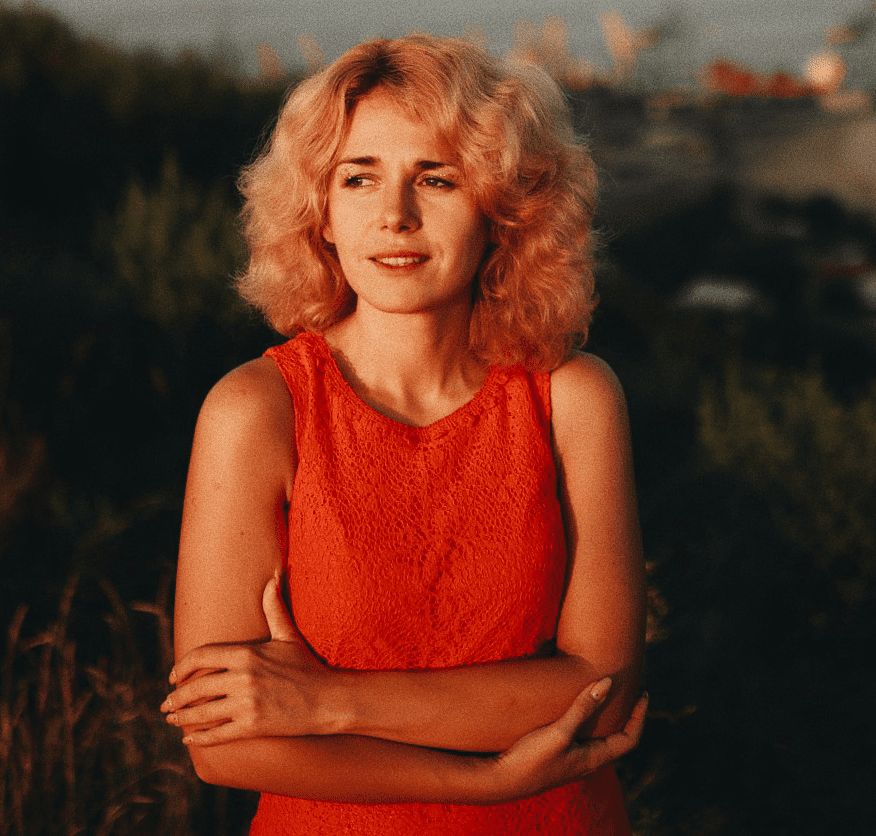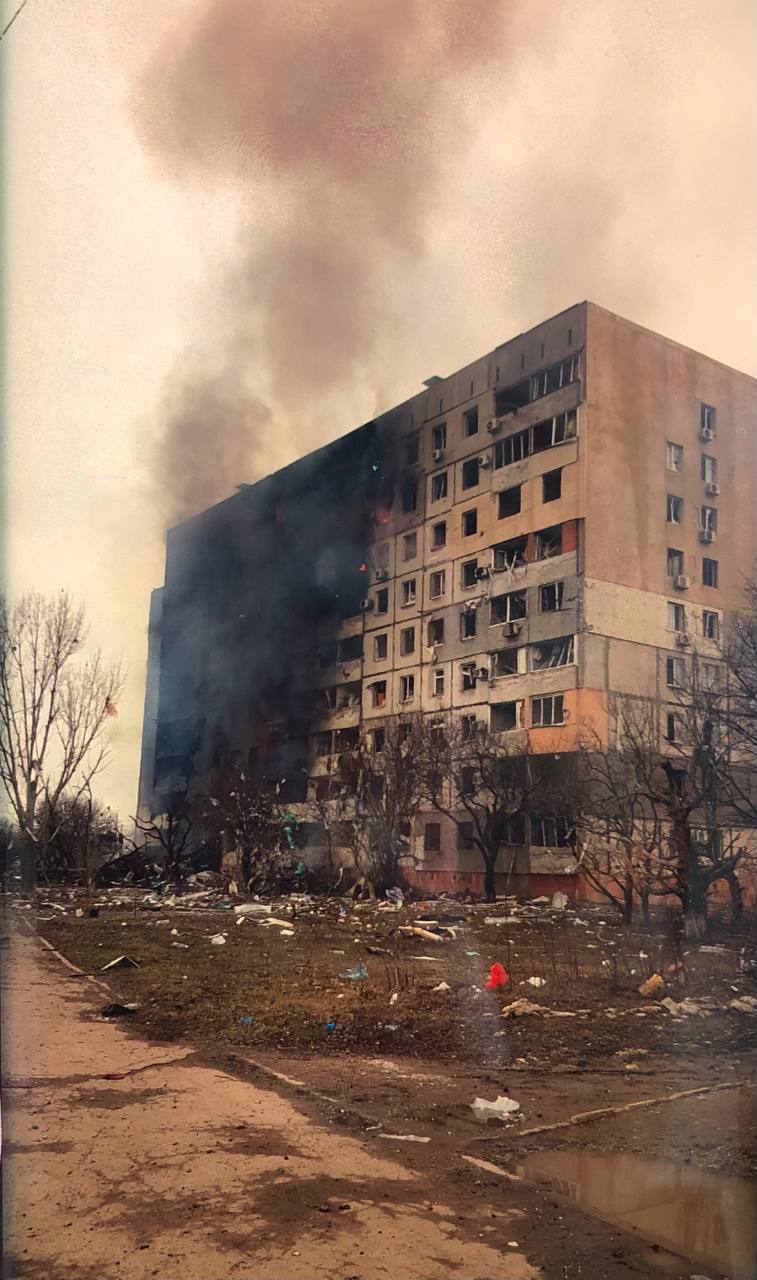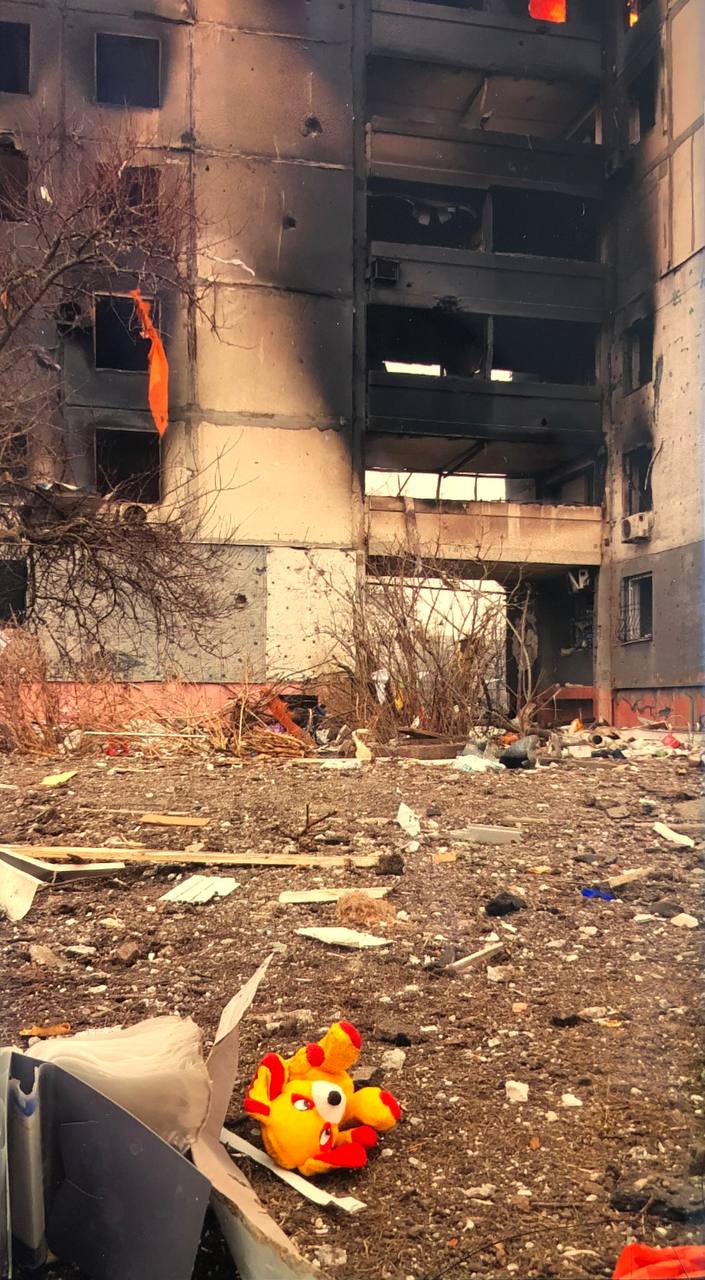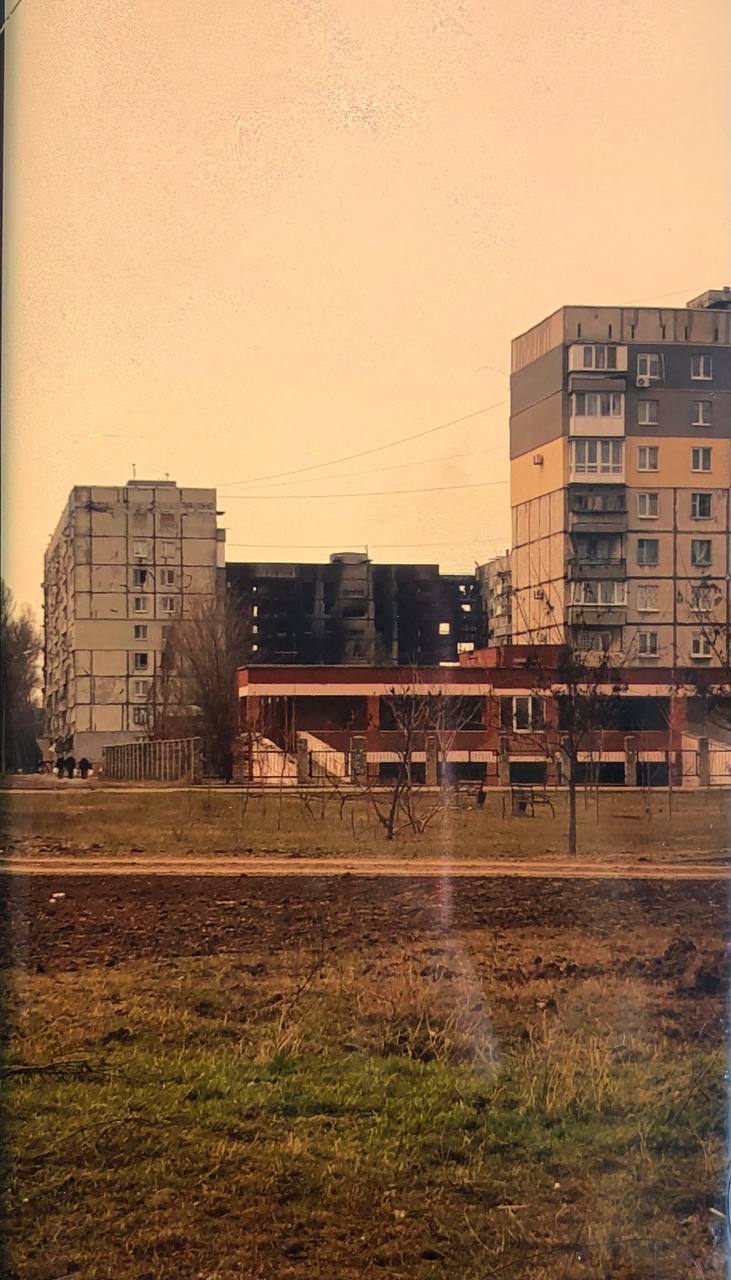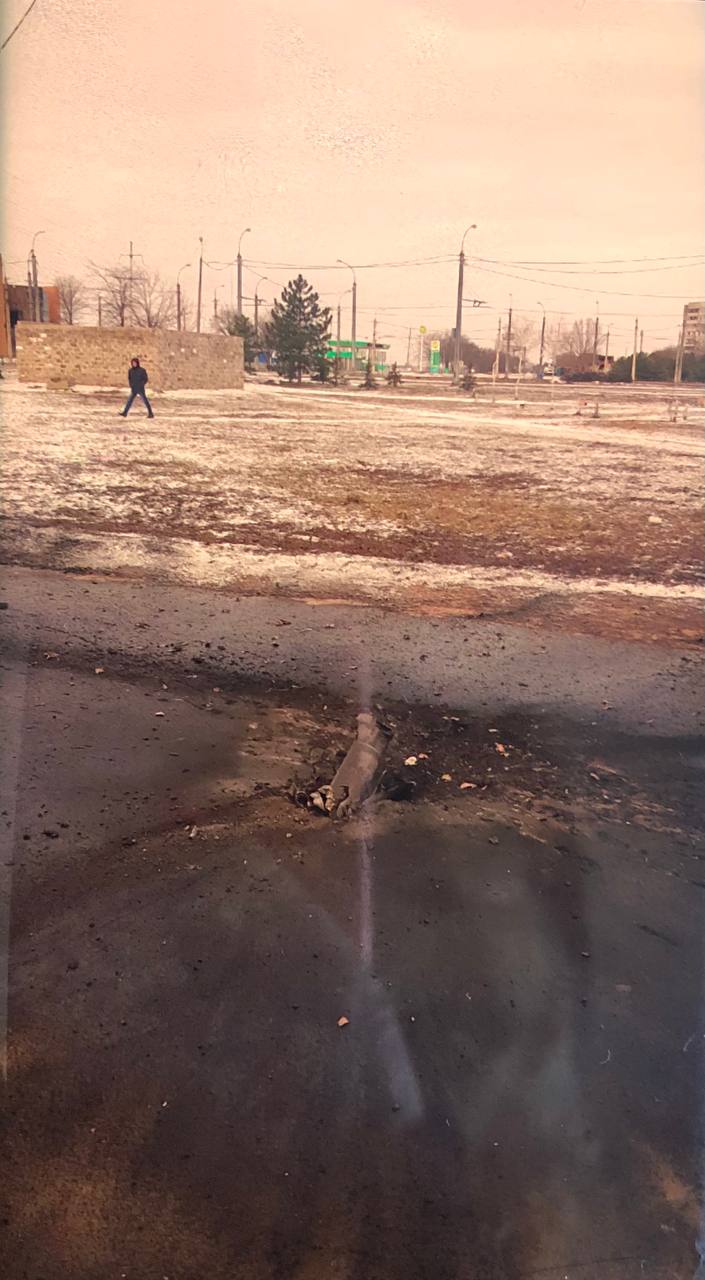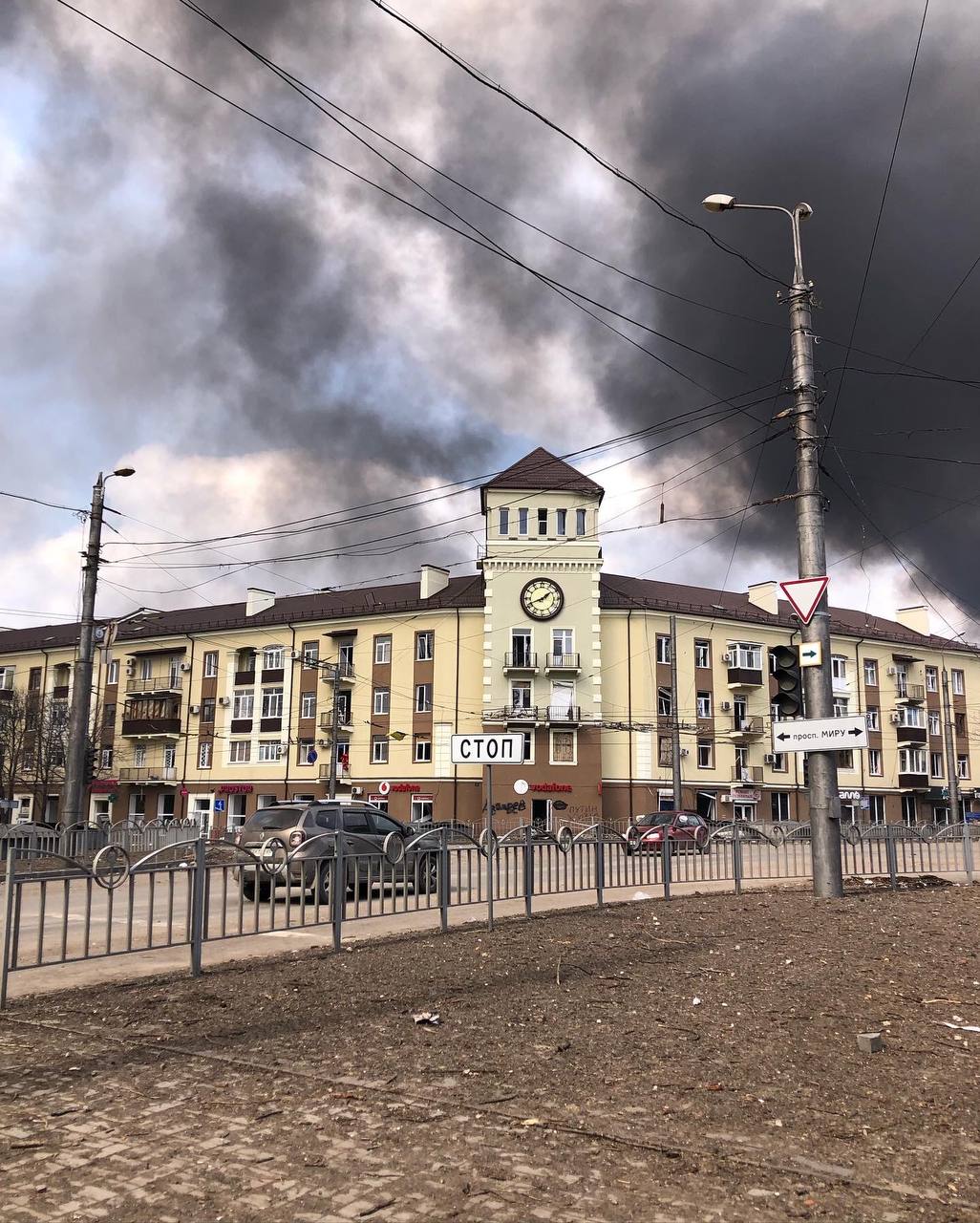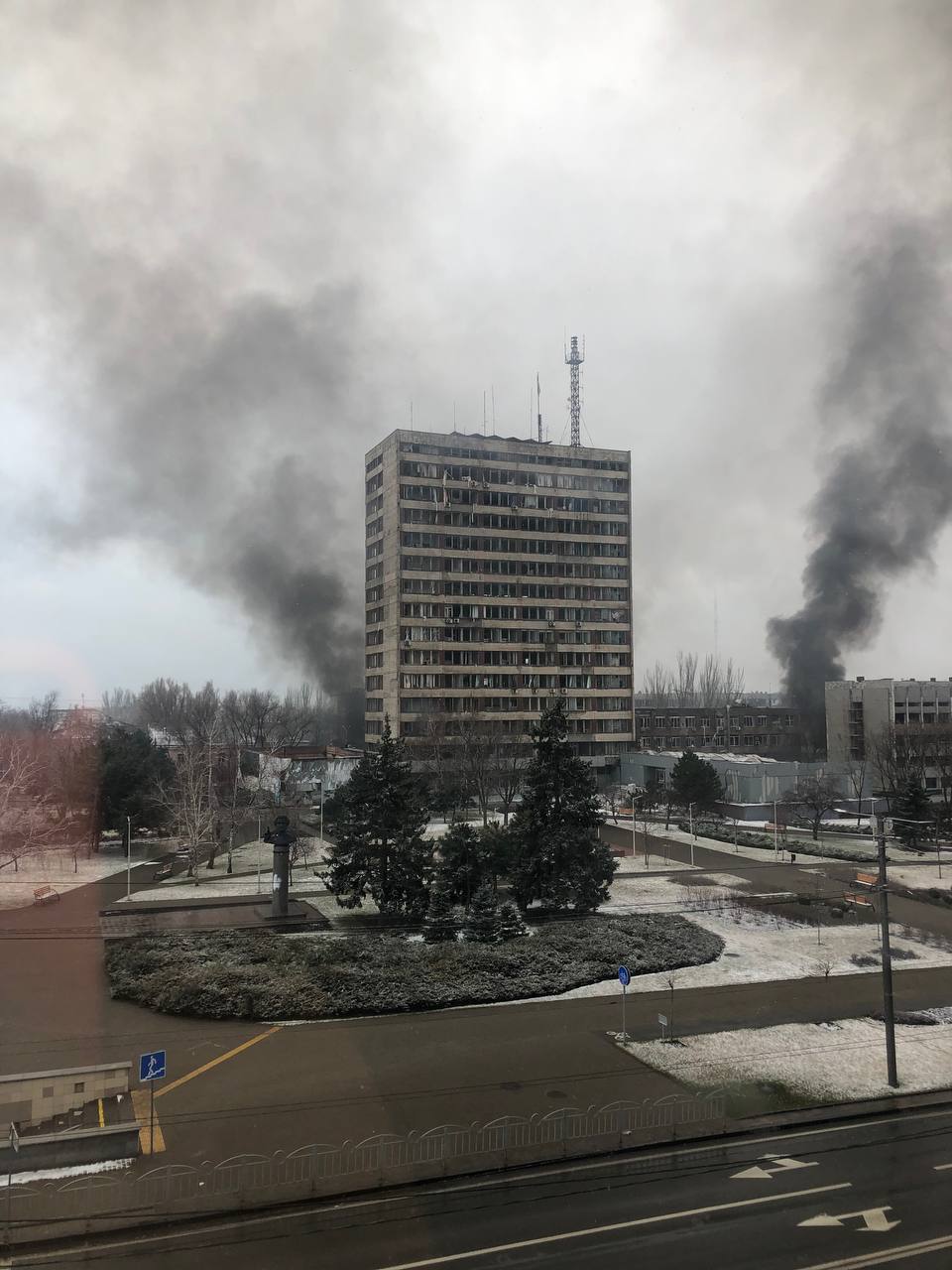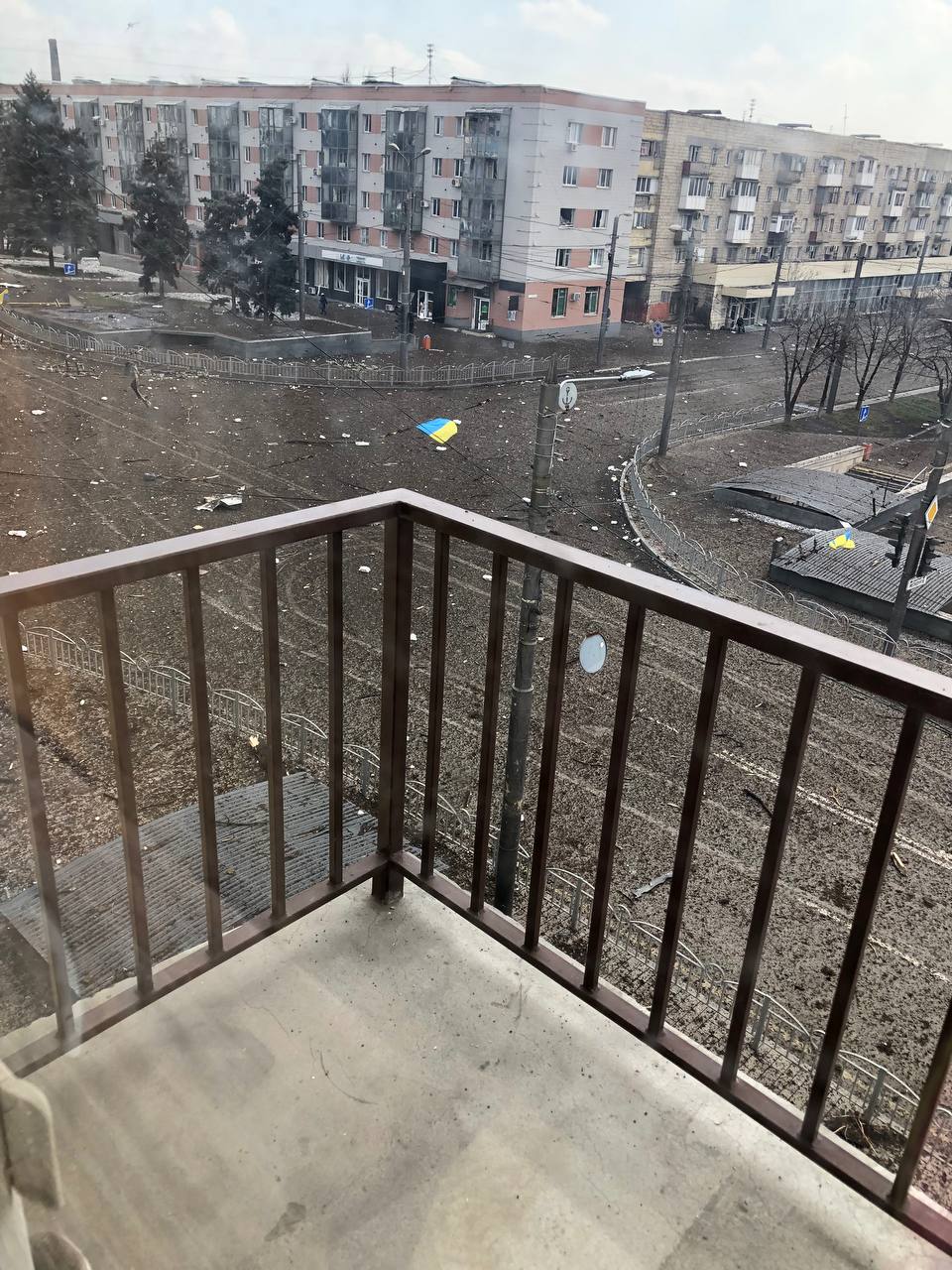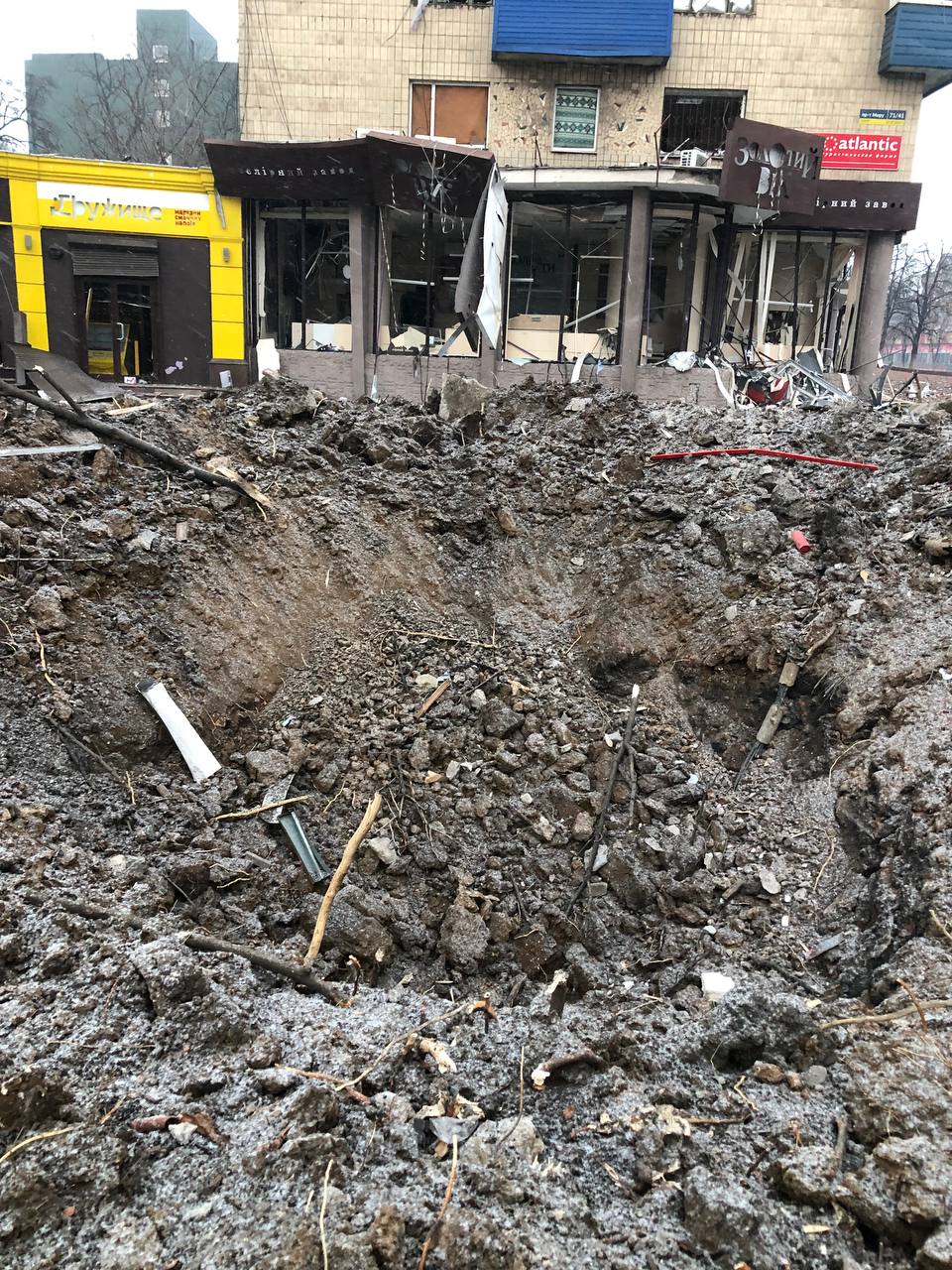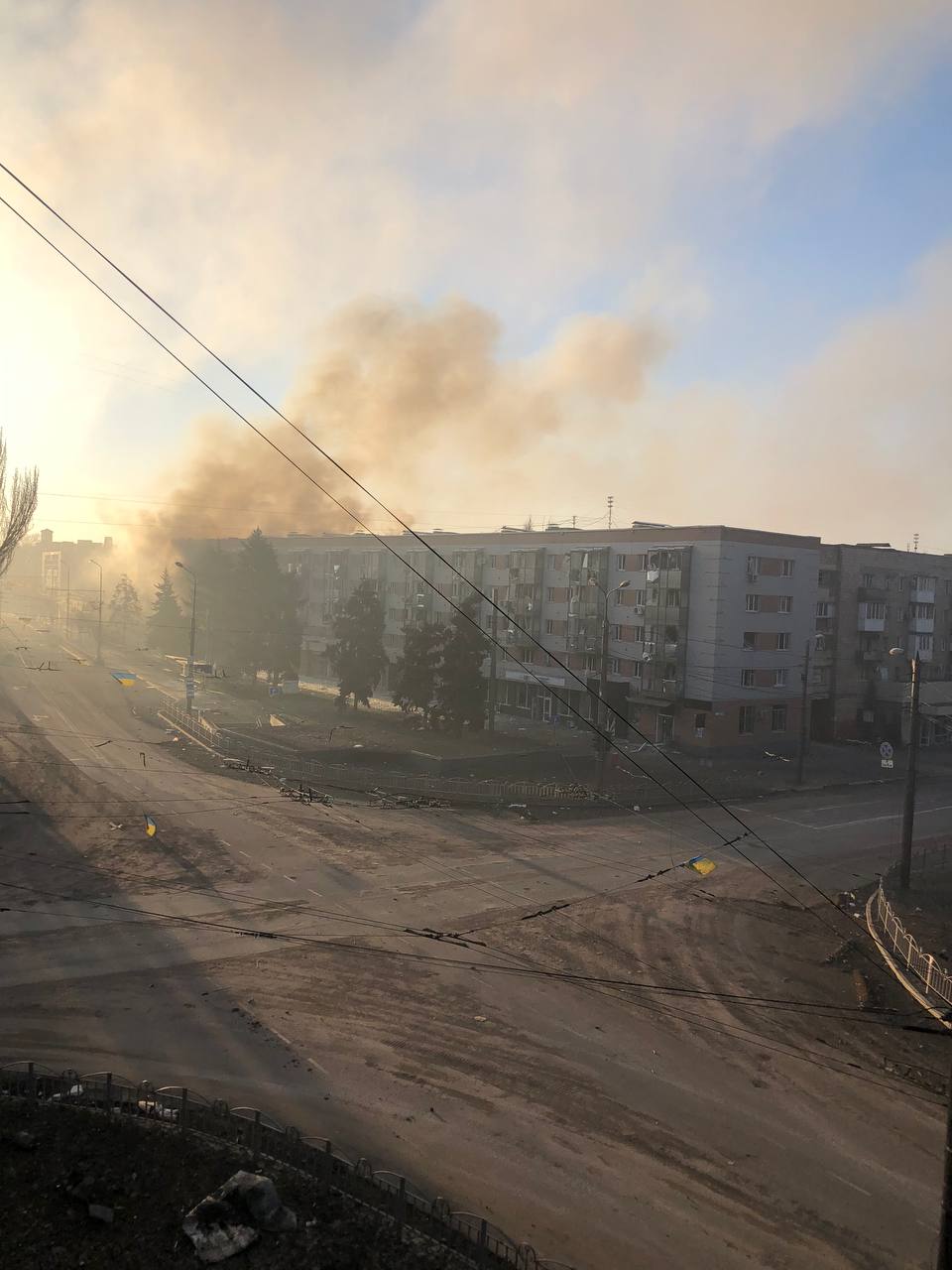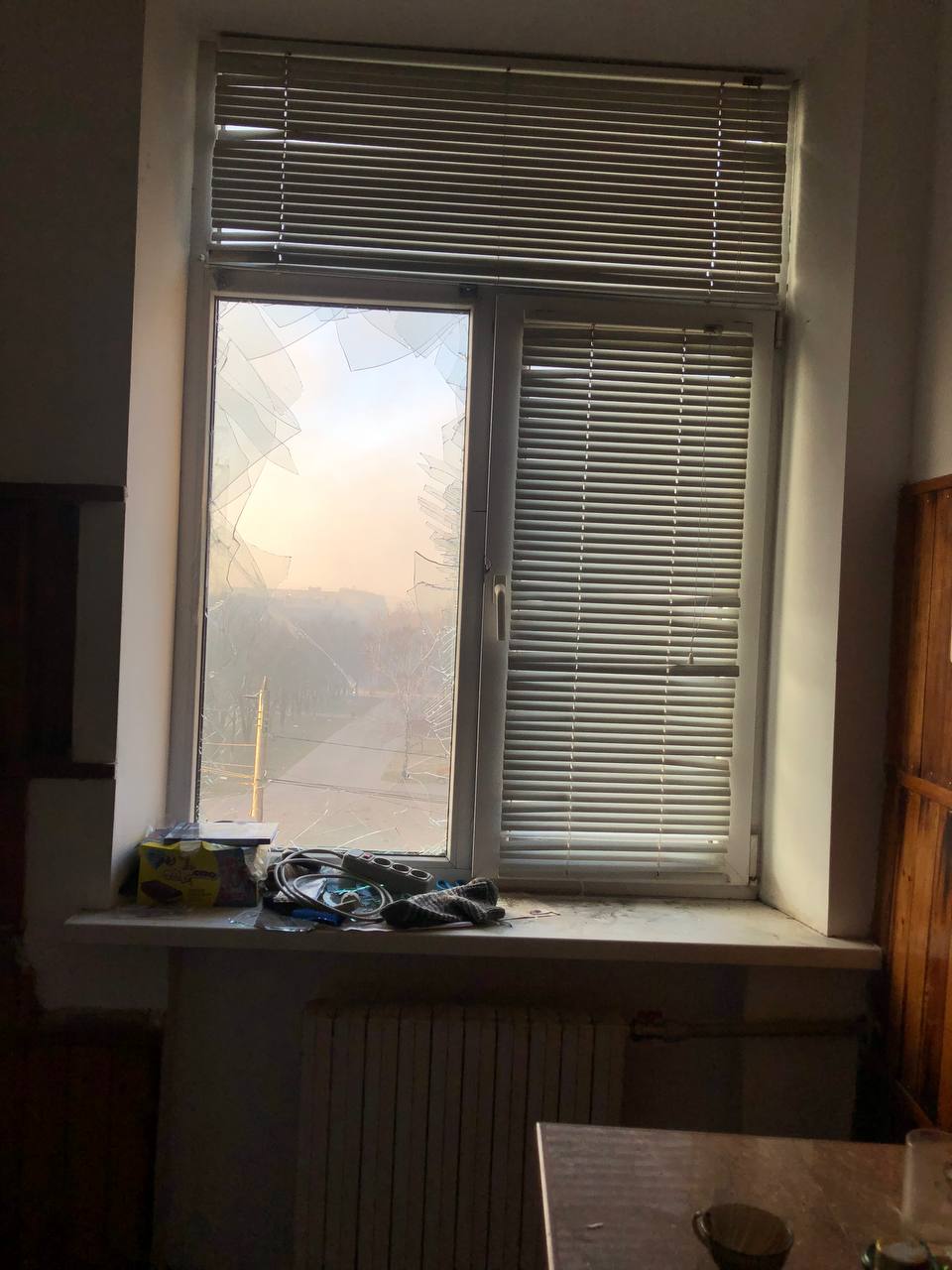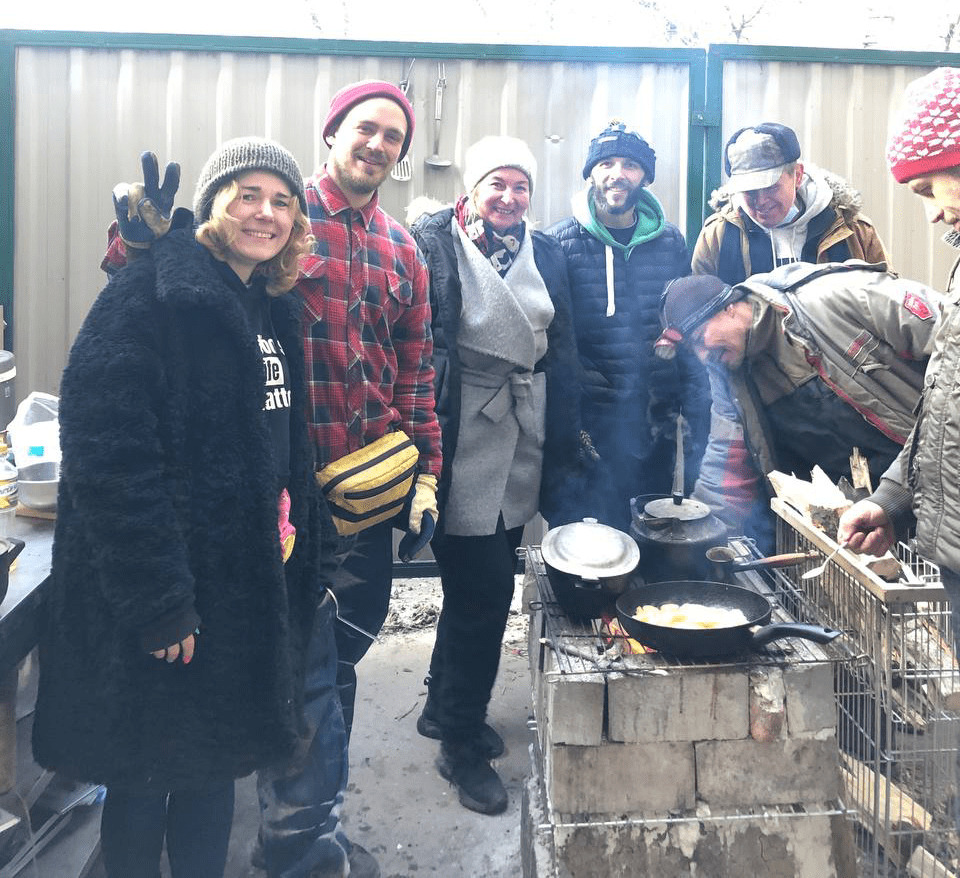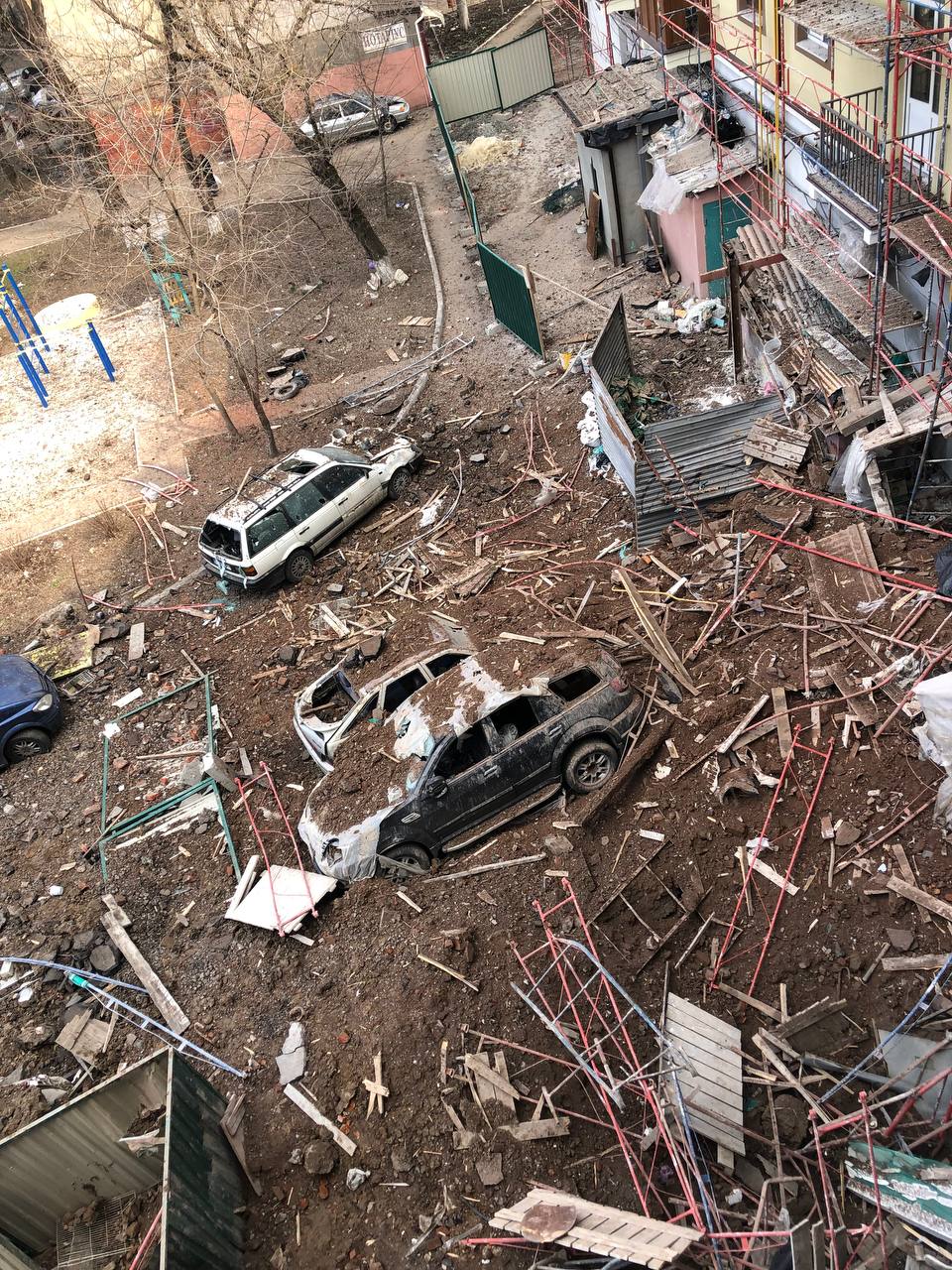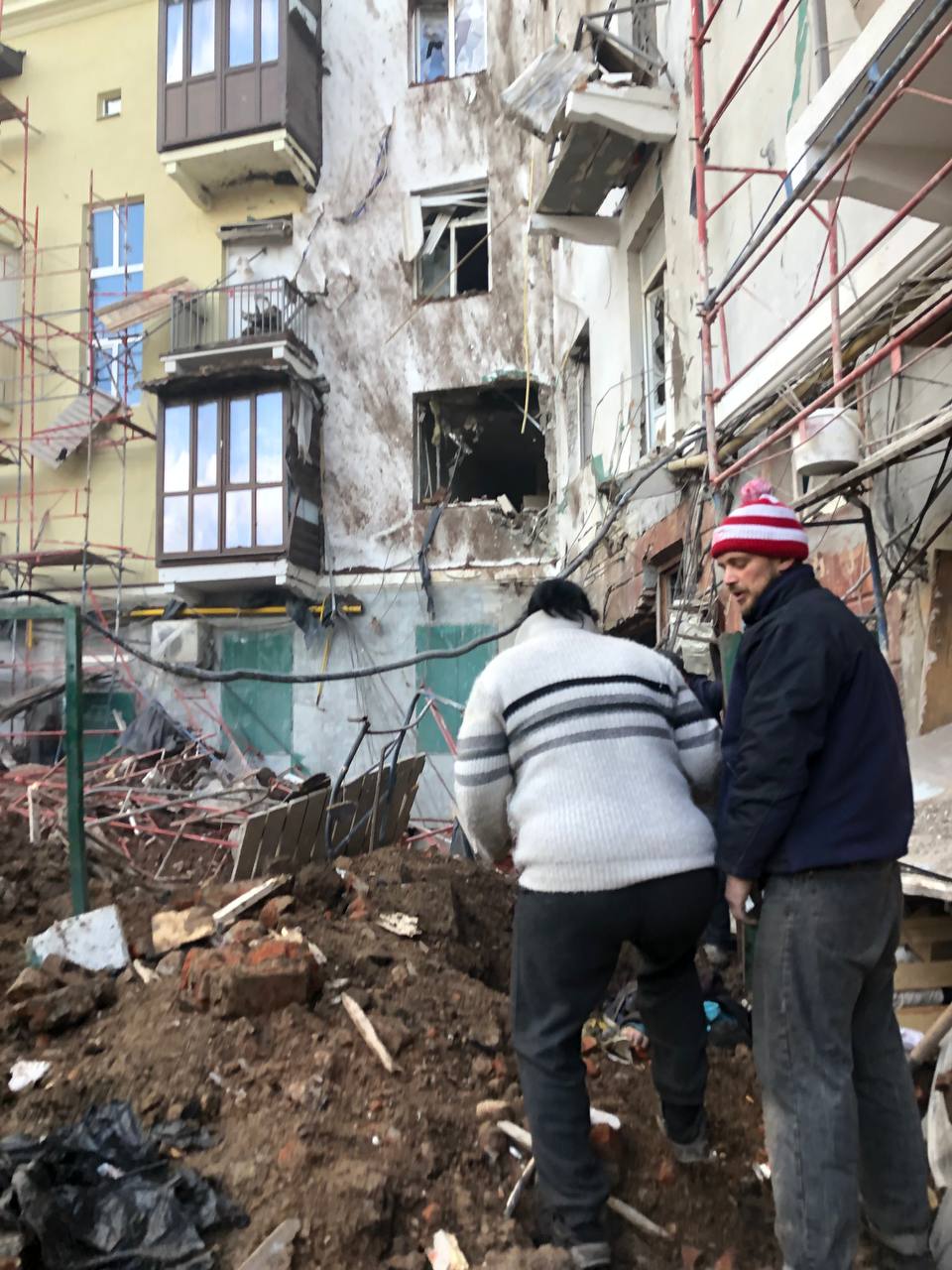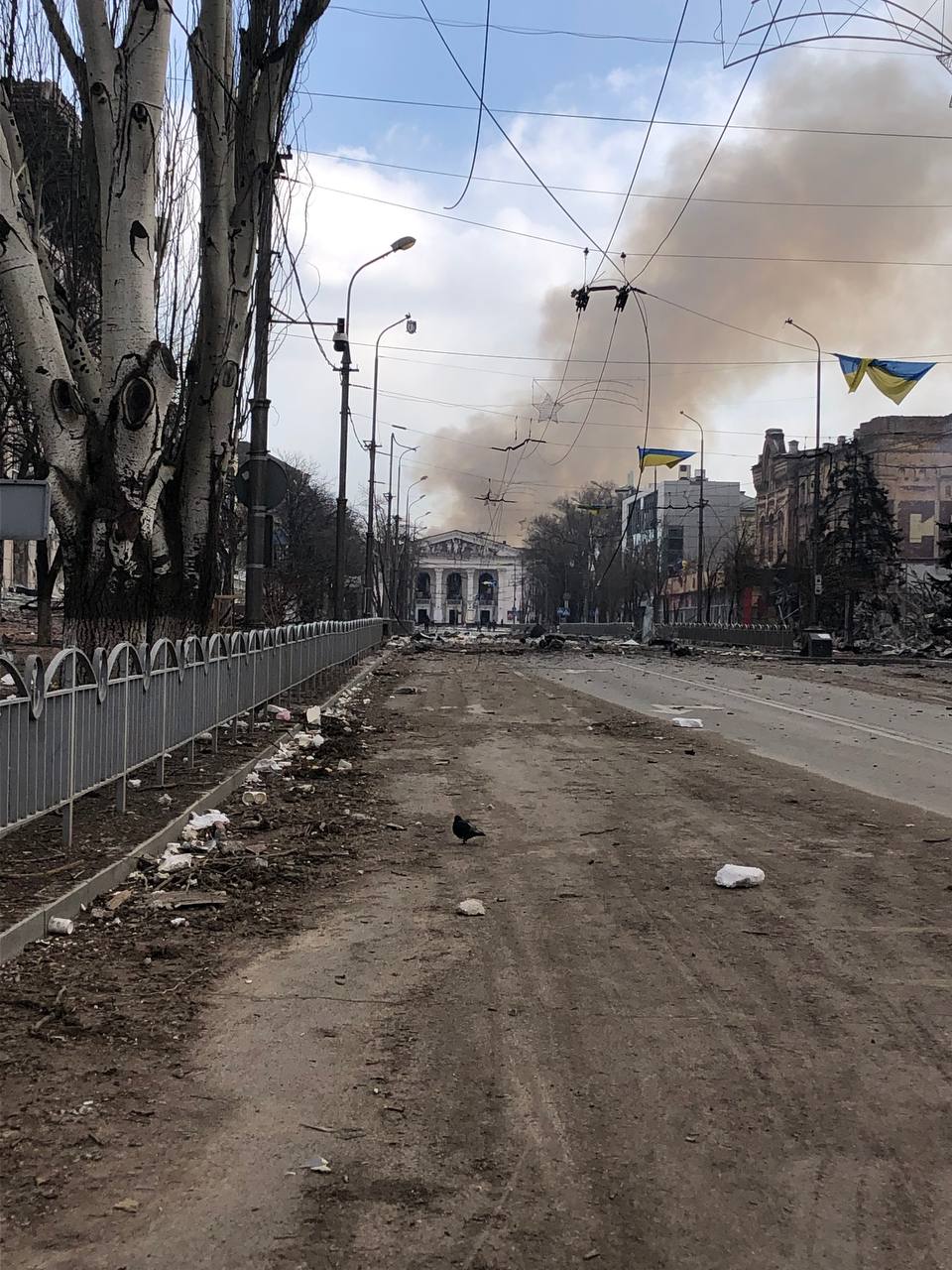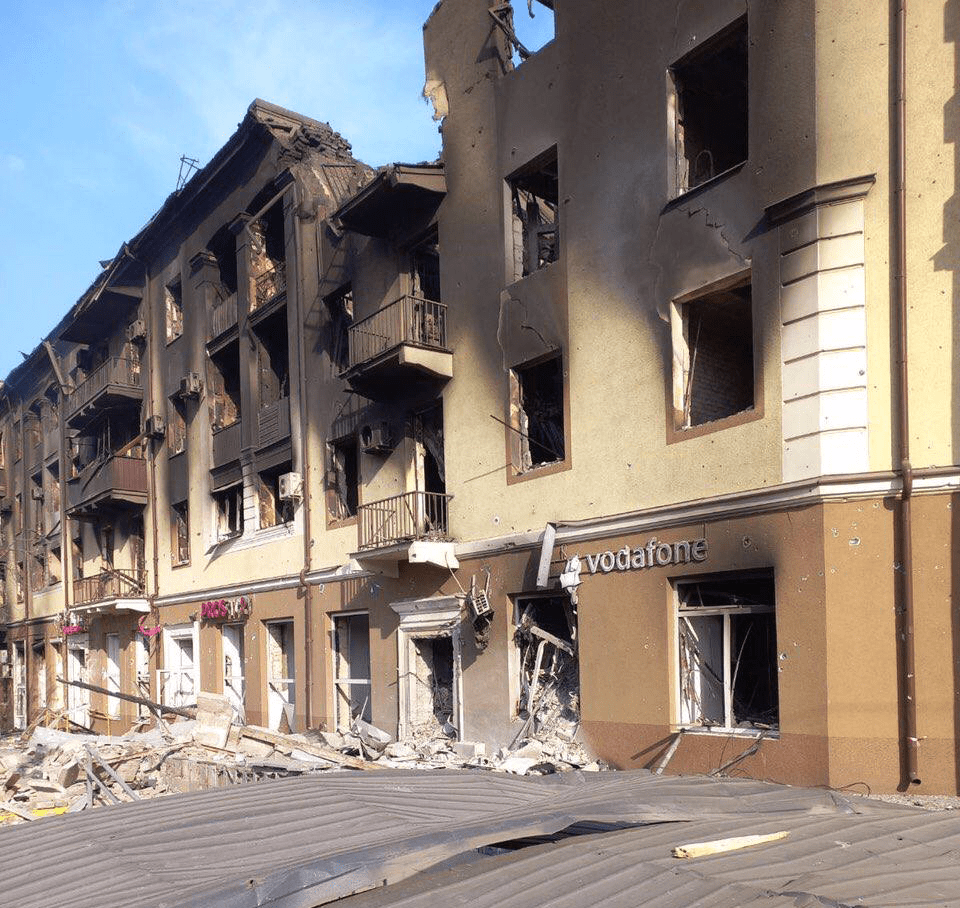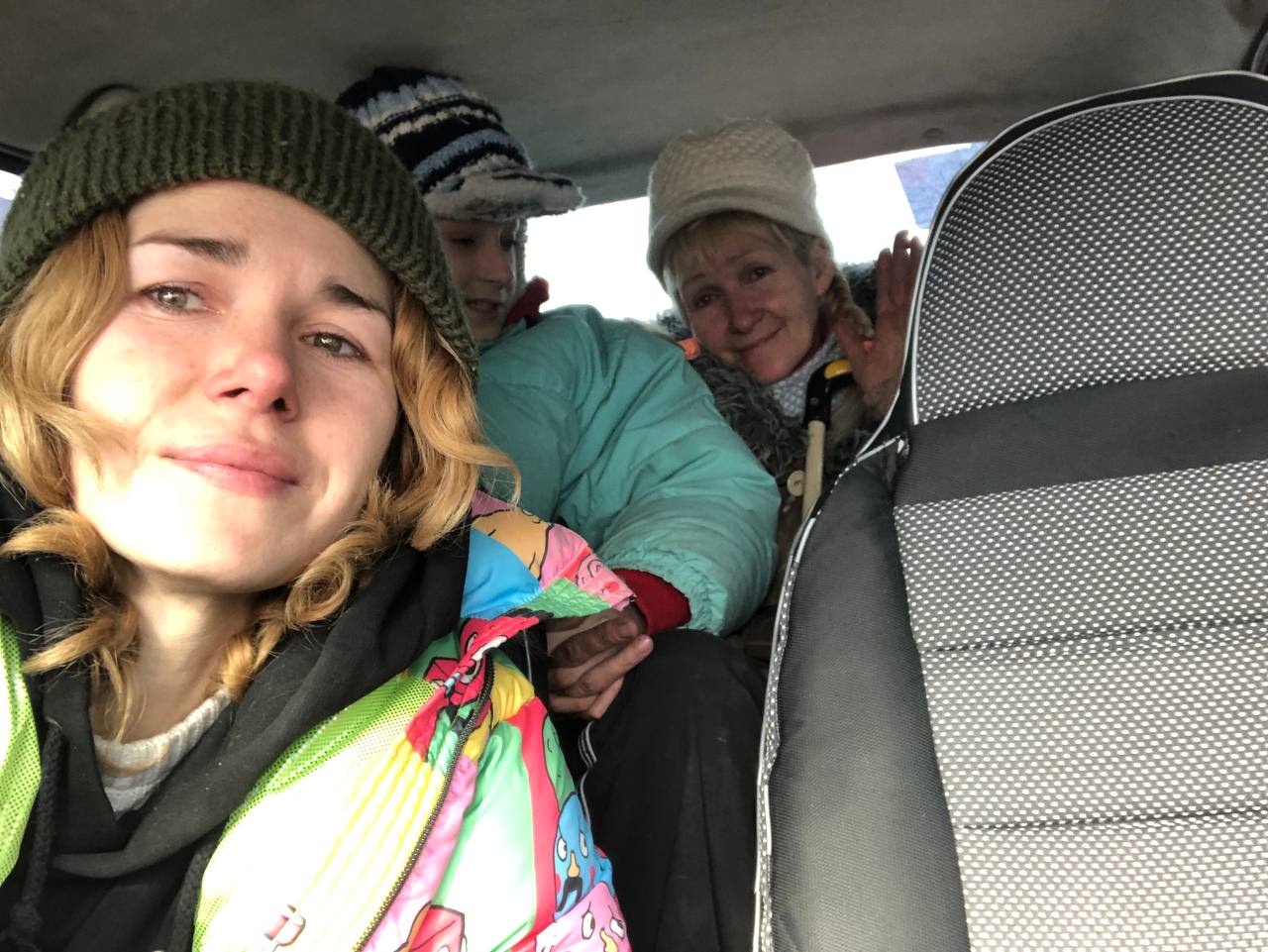Alevtina Shvetsova and her family covered 20 kilometers on foot, getting out of Mariupol – and returned to save her parents and brother. Exclusively for Zaborona, journalist Nadiya Shvadchak talks about how the family managed to survive and get out of hell.
Before
Alevtina works as a journalist on local television, where she leads the project “Place of Power”. She knows about every old house in the city, about hidden Soviet mosaics and prominent citizens. She lives by the belief that everyone should see Mariupol.
In one issue, Alevtina descends to the basement of the Drama Theater in the city center to show how the stage rotates and the scenery changes. “The Drama Theater is the most recognizable building in Mariupol,” she says. “But you have never seen such a drama theater.”

Alevtina Shvetsova
Mariupol will survive
Foreign journalists approach Alevtina. There are many of them in Mariupol. They wonder if Alevtina will leave with her family if the war starts. She shakes her head: “No, Mariupol will survive! This is the most protected city in Ukraine. We have already experienced shelling in 2015, and buried the victims; we saw the “Russian world”. We are able to resist.”
Alevtina watches how the city prepares, how fortifications are formed, and how the military moves.
She is sure that everything will be fine.
Her brother will be twelve on February 24. They have to go to the children’s center and order pizza.
The war began
On February 24, at 6 am, Alevtina heard her husband’s voice on the phone: “The war has begun.”
With her husband and eight-year-old son, they go first to the volunteer center and then to the 23rd district, where Alevtina’s parents and brother live.
The next day they are all living there: without light, heating, water, and communication. The gas will last until March 6.
“We carry blankets into the hallway and sleep on the floor. We put on jackets, hats, shoes, and cover ourselves, but we can’t keep warm. We wake up from the shelling all the time. I cover my child and pray that we don’t get hit. ”
The windows and the house tremble from time to time.
Alevtina is sure that it will end soon. “The mayor assures us that everything will be fine, the infrastructure will be adjusted. That it is dangerous to leave because there is fighting on the outskirts.”
Chich, the parrot, dies
On March 8, the shelling did not stop for a minute, a shock wave blows out the windows. Plywood protects us for a while: it is torn by the next wave. Chicha, the parrot, dies from the cold. The children bury her in the yard.
To the sound of a cannonade, the family walks to a rented apartment in the center, at the intersection of Peace and Metallurgists Streets. Alevtina’s husband’s parents and grandmother have already moved there.

Alevtina’s House. Photo provided by Alevtina
The first photos
A dead man is lying on the road, a wounded man is sitting in an entrance, and unexploded shells are sticking out of the ground. Alevtina has a feeling that she will not return here. She turns on the phone and takes a few photos.
“Shots are getting quieter and more distant. It seems that everything is fine: now we are far from the epicenter of events. We are wrong. ”
Shelter
The shelter in the house has a high ceiling, two exits, and a makeshift toilet. But it is crowded. Therefore, Alevtina and her family (mother, father, brother, son, husband, his parents, and grandmother) live in an apartment and spend the night in the basement of a nearby shop. The problem with the basement: there is one way out, and if it collapses, the shelter will turn into a mass grave.
Airplanes mean death
From the window of the apartment of their dreams, you can still see the sea waves. Enemy planes are now reaching the shore in parallel. The rumble approaches grow impossibly loud and turn into an explosion.
Alevtina freezes in prayer. The house shakes with great force. But it is too early to relax: there should be two explosions.
“Airplanes are death. If the bomb hits the roof of the house, it destroys the apartment from the first to the last floor. The blast left craters four meters deep and seven in diameter. Wires and trees intertwine there. Everything is covered with dirt.”
First, there are seven air raids a day. Over time, they become more frequent.
It’s good that you’re not a corpse on the side of the road
Alevtina ceases to wonder and simply perceives reality. They took out the windows that were reinforced again, the remaining fragments, swept up. They prepare food while there is free space on the fire, go down to the shelter, and sleep until the planes approach.
Daily view from the window: the city on fire. The window broke later. Photo provided by Alevtina
“No, you do not think where to get strength, but just thank God that you are alive at this moment. You have no problems. You are not a corpse lying on the side of the road.”

This is how we cooked food. A bomb will fly into the “stove” on March 16. Photo provided by Alevtina
“I’m starting to rely on fate. They are always bombing and shooting, but children still need to eat. The main dish is “soup soup”. There are nine of us, so we take a saucepan, collect water, chop three or four potatoes, add a few tablespoons of cereal, and cook over a fire. Pour for children, wait until they eat. Pour into the same plates for the parents. The water that remains after washing the dishes is used to flush the toilet.
Water is brought daily in a large tank. To get it, you have to wait in a long queue. At the same time, this queue is the only place where you can find out at least some news.
Alevtina’s family has few food supplies: some potatoes, wheat groats, apples for the children, and a few glasses of flour. Mom suggests drying potato skins.
Such hell on earth is impossible
Alevtina and her family spend the night in the basement of a 12-square-meter store. Not so long ago, saleswomen changed into their uniforms here, and boxes of goods lay on the shelves. Now people are lying on the floor. Children sleep on briquettes made of glass, grandmother is napping while sitting upright.
Looking for candles or a flashlight in drawers, Alevtina finds a Ukrainian flag. Probably, it was hung out in the store on public holidays. She puts it in her backpack.
Before an extremely short nap she and her son dream of going to their favorite cafe, and having a big pizza and cappuccino.
“We fall asleep thinking that tomorrow everything will end, that the world knows about Mariupol, and such a hell on earth is impossible.”
It will not stop
The thought is interrupted by the arrival of a bomb in the yard.
It happened on March 16 at 10:30, when people were preparing food on the fire in the yard. Alevtina and her children go up to the apartment to get plates.
The house is shaking like never before. The ceiling is cracking. The room is filled with thick dust.
The bomb hits exactly where the fire for cooking was. Where were the people.
First, a boy is dug out and carried to the shelter to be helped. Fifteen minutes later a girl dies. She did not have time to reach the shelter, she was thrown by the blast and maimed. A neighbor’s body is taken out from under the rubble, covered with a sheet, and placed near the porch.
It becomes clear that this will not stop. We have no information about green corridors. We don’t have a car or a telephone connection to find friends.
The only way out is to walk along the sea.”
The drama theater is on fire
Alevtina turns on the phone and takes a few photos. She wants to remember this day because she is afraid that later she will not believe that it all really happened. She does not notice that one photo shows the hand of her dead neighbor under the rubble.
In another frame, the drama theater is on fire. 20 minutes ago a Russian air bomb hit it.
No one knows that about 300 people died there.

We left Mariupol on foot. The drama theater is on fire after the shelling. We did not yet know the scale of the tragedy at the drama theater. The photo was provided by Alevtina
“For the first time we spend the night in a heated place”
“We go out without my mother. She does not have the strength to go the whole distance.”
Brother and dad stay too. Alevtina feels, that with each step along the sea, her chances of ever seeing relatives decrease.
Ten kilometers away, the family seeks refuge in the village of Pishchane.
“A local resident, Tanya, has a working stove. For the first time since the beginning of the war, we spend the night in a warm place. An unreal pleasure.
A phone connection appears. There is a message that there is a corridor through which you can move on at your own risk. The first village on this list is Portovske. Alevtina and her family get to it after 10 more kilometers.”
A man’s seventy-eight-year-old granny never once complained about being tired.”
“I couldn’t let you down,” she says later. “If I had to, I’d have crawled.”
With a flag through enemy checkpoints
A miracle happens in Pokrovsky.
Alevtina meets an acquaintance who is going to return to Mariupol to pick up some things.
On March 17, they return there together.
During that day, Alevtina’s house becomes shaky and dangerous – you can see through it. On the ground floor, there is a huge hole through several walls. The house was destroyed by shelling.
Alevtina finds relatives in the same basement of the store.
Through Russian checkpoints, she carries a Ukrainian flag in her backpack from the store’s vault.

Alevtina’s house, on top of her balcony. Photo provided by Alevtina
After
Alevtina and her family left. They succeeded. From February 24 to March 21, they did not take off their clothes or wash their hair. It was too cold, too unclear when they’d have to flee.

Alevtina’s mother and brother, for whom she returned the next day. Photo provided by Alevtina
Alevtina got out, but can’t be happy. She knows how many people are left behind. She knows that among them is her grandmother, who decided to stay in the city. That was her choice. Nobody knows how she is now.
Alevtina’s backpack is still unpacked. It still has a flag from the basement of Mariupol.
“I can’t feel safe. But if I have to run away again, I will know that our new family heirloom is always with me.”

